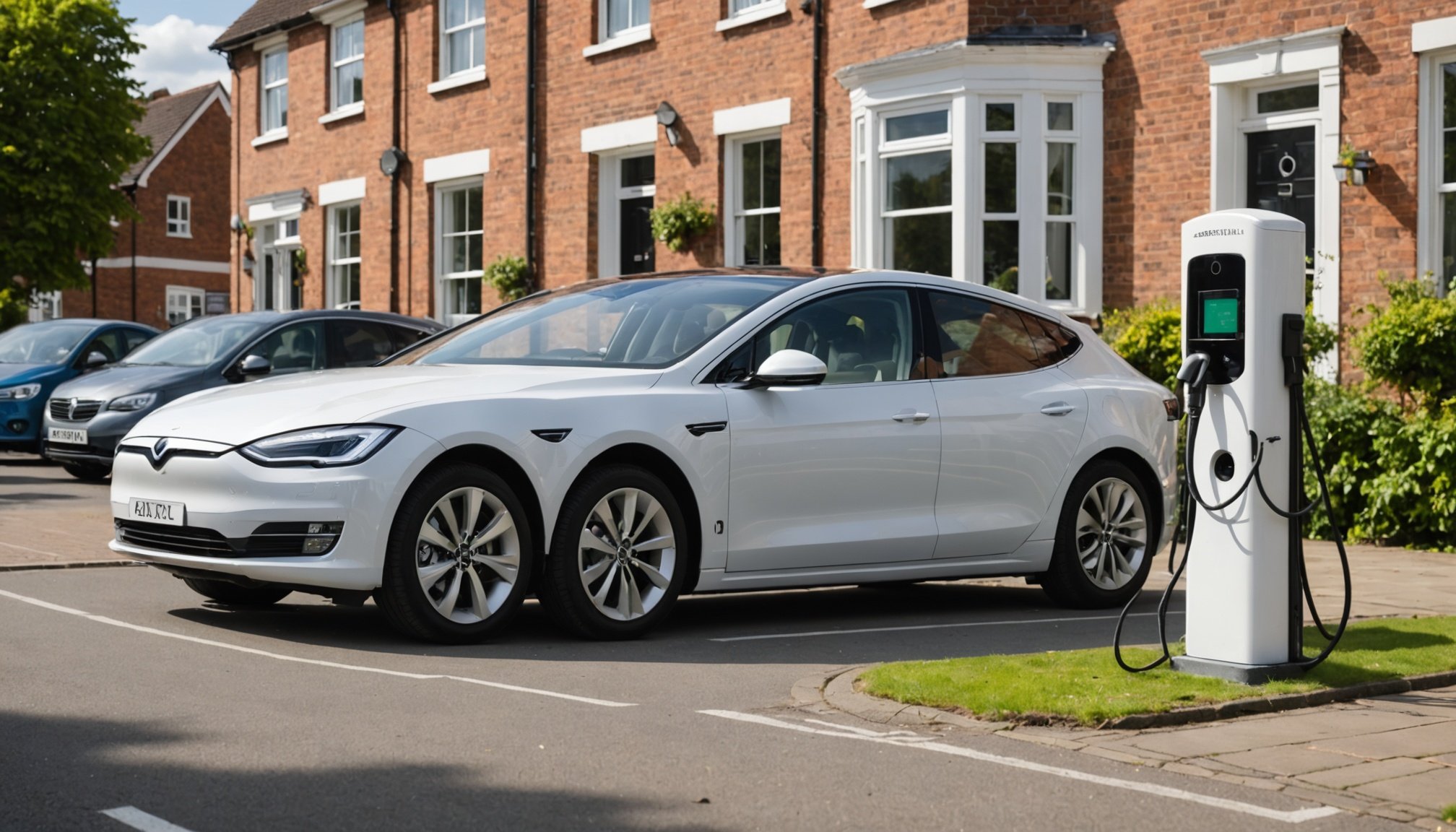Overview of Electric Vehicle Charging Stations Costs
Understanding the costs associated with electric vehicle charging can be crucial for potential EV owners in the UK. On average, charging station installations range from £800 to £1,500. This variation is influenced by several factors, including location and the complexity of installation at your home. For instance, installing in an older property without modern wiring may incur additional expenses.
UK home installations often vary by region, with London generally being more expensive than rural areas. Labour costs differ significantly due to local economic conditions, impacting the overall expense. Also, the distance from the main power supply to the charge point can increase the total cost.
Have you seen this : Mastering the Financial Hurdles of Your UK Farmhouse Renovation: A Comprehensive Guide
When considering equipment, charging station options greatly affect the price. Basic models might be more affordable, but advanced systems equipped with smart technology for energy management could cost more. Fast chargers entail a higher initial outlay compared to standard ones.
In essence, while the initial investment might seem substantial, sourcing the right guidance ensures your electric vehicle charging costs align with your budget and needs. Measurements of these costs enable more informed decision-making in preparation for the electric journey ahead.
In the same genre : Evaluating the Market Opportunities for Transforming UK Agricultural Structures into Dream Homes
Installation Fees
Setting up electric vehicle chargers involves several key components that determine the overall cost. Understanding these elements can lead to an informed decision and potentially, cost savings.
Labor Costs
Labor constitutes a significant portion of installation costs. It is essential to consider the expertise needed, as more complex installations require specialized electricians. Typically, labor costs can range based on location and the complexity of the installation. A proficient job not only ensures safety but also optimal performance of the charger.
Permitting and Inspection Fees
Securing the appropriate permits is crucial. Municipalities often require an inspection to ensure the installation meets local codes and regulations, impacting both time and finances. The fees for permitting vary dramatically. Thus, factoring in these fees early in the planning stages of electric vehicle chargers installation can prevent unforeseen expenses.
Additional Equipment Required
Beyond the basic charger, some installations may require additional equipment, such as a new circuit or a service panel upgrade. This equipment becomes necessary when existing electrical systems cannot support the new charger. Evaluating the current electrical capacity before starting the installation can help anticipate these additional costs and lead to a comprehensive installation without surprises.
Equipment Prices
Understanding the cost landscape of EV charger models is essential for making informed purchases. The pricing of charging equipment varies significantly based on features and levels.
Level 1 vs Level 2 Chargers
Level 1 chargers are generally more affordable, given their slower charging capabilities suitable for casual, overnight charging sessions. In contrast, Level 2 chargers come with higher costs but offer considerably faster charging, making them ideal for more frequent use or when quick turn-arounds are necessary. When considering a pricing comparison between these types, Level 2 chargers usually cost more than triple the price of Level 1 chargers. However, the investment might be justified with the time savings and utility they provide.
Smart Chargers vs Traditional Chargers
Smart chargers, as opposed to traditional models, come equipped with features like app connectivity and scheduling capabilities. These added features invariably raise costs. Investing in a smart charger might be prudent for those seeking efficiency and automation in their charging routine.
Popular Brands and Their Pricing
Popular brands in the market offer a range of pricing to cater to different needs and budgets. It’s essential to do a pricing comparison between these brands to secure the best value. Remember, while price is crucial, evaluating the functionality and longevity of the charger is equally important.
Financial Incentives and Subsidies
The UK government offers several EV charging grants to encourage electric vehicle adoption. These grants focus on reducing the installation costs of home charging points. A notable program is the Electric Vehicle Homecharge Scheme (EVHS). It provides financial aid specifically to homeowners wishing to install a charging station.
To be eligible for such incentives, applicants must meet certain criteria. For instance, the property must have off-street parking, and the applicant should own or lease an eligible electric vehicle. Additionally, the charging point must be an eligible model under the scheme. These eligibility criteria ensure that the grants support appropriate installations that align with government goals.
The impact on overall costs can be significant. By utilising these subsidies, homeowners might find the upfront costs of purchasing and installing charging points more manageable. This financial assistance not only makes the prospect of charging at home more practical but also promotes a sustainable transition towards electric vehicles.
Overall, these financial incentives play a crucial role in making electric vehicle adoption more accessible and cost-effective for consumers in the UK.
Maintenance and Operational Costs
Understanding the maintenance and operational costs of EV chargers is crucial for informed decision-making.
Routine Maintenance Expenses
Routine maintenance for an EV charger is generally straightforward, focusing on periodic safety checks and software updates. These checks ensure both the charging station’s longevity and efficiency, typically encountering minor costs similar to other electrical maintenance tasks.
Potential Repairs and Issues
While EV chargers are robust, occasional issues may arise. These might include hardware malfunctions or connectivity problems. Repair costs can vary, but many manufacturers offer warranties to cover such eventualities, alleviating some financial burdens.
Energy Costs and Savings
When it comes to running costs, evaluating the energy consumption of an EV charger is vital. The cost of electricity can fluctuate based on geographic location and tariff plans. However, energy costs for charging an electric vehicle remain significantly lower than refuelling a conventional vehicle with petrol or diesel. This difference offers substantial long-term savings. Additionally, any surplus energy from renewable technology can further reduce costs, creating an eco-friendly and economical solution.
By understanding these factors, individuals can better navigate the financial landscape of owning an EV charger and anticipate the financial benefits and requirements of sustainable energy choices.
Cost-Saving Strategies
When installing EV chargers, investing in affordable yet efficient options is paramount. Choosing a budget-friendly charging station without compromising on performance is possible by focusing on essential features rather than extravagant add-ons. Prioritising core functionalities ensures effective charging at a lower cost.
Timing the installation is another essential factor in saving on EV charger costs. Performing installations during off-peak times can sometimes lower labour costs. Off-peak might refer to seasons or times of day when electricians are less in demand. Engaging with professionals to determine the best timing could yield significant savings.
Leveraging local resources and community programs also plays a crucial role in reducing expenses. Many regions offer incentives or rebates for installing eco-friendly solutions, including EV chargers. These programs often aim to accelerate the shift towards electric vehicles, making installation more affordable.
To maximise budget, it’s beneficial to research and apply for any available state or municipal assistance programs. By combining savvy purchasing choices, smart timing, and community aid, installing EV chargers becomes much more feasible without breaking the bank.











